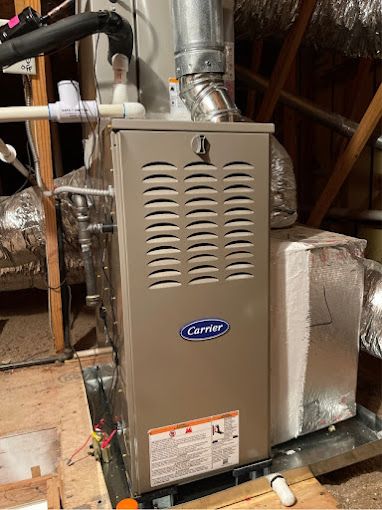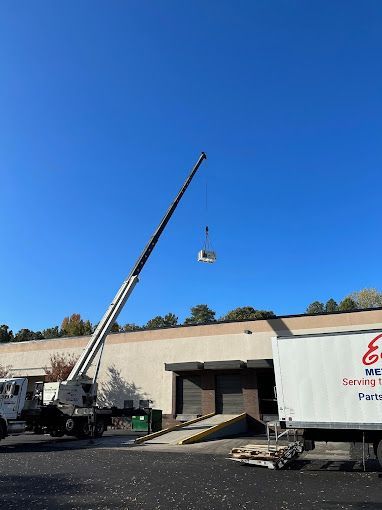September 25, 2024
Maintaining a comfortable home environment relies heavily on a well-functioning heater. Over time, however, your heating system may show signs of wear and inefficiency. Knowing when to replace your heater rather than constantly repairing it is crucial for ensuring your home stays warm and energy-efficient.
Signs Your Heater Is Nearing the End of Its Lifespan
As heaters age, they begin to show signs of wear that can indicate it’s time to consider a replacement. One major sign is the frequent need for repairs. If you find yourself constantly calling our professionals for heating repair, it may be more cost-effective to invest in a new heater. Continuous repairs often indicate that the system is struggling to function and could break down completely soon.
Another sign is uneven heating throughout your home. If some rooms are much colder than others, it might be a sign that your heater can no longer distribute heat effectively. You may also notice increased energy bills. An old, inefficient heater has to work harder, consuming more energy to provide the same level of warmth. This spike in energy usage is a clear indicator that your heating system is not operating efficiently.
Strange noises are another red flag. Loud bangs, rattles, or squeals often signal internal problems within the unit. These issues can lead to more severe damage if not addressed promptly. Finally, if your heater is over 15 years old, it’s likely nearing the end of its effective lifespan. Heaters have an expected lifespan, and pushing beyond that can result in inefficiencies and frequent breakdowns.
Benefits of Upgrading to a New Heater
Upgrading to a new heater comes with several advantages that can improve your home’s comfort and efficiency. One of the primary benefits is enhanced energy efficiency. Modern heaters are designed to be more energy-efficient, reducing your energy consumption and lowering your utility bills. This means you’ll save money over time, even if the initial investment is higher.
A new heater also offers improved performance. Advances in heating technology mean that newer models can heat your home more evenly and reliably. You’ll no longer have to deal with cold spots or uneven temperatures, enhancing your overall comfort. Many modern heaters come with advanced features such as programmable thermostats and smart home compatibility, giving you better control over your home’s temperature.
Additionally, a new heater requires less frequent maintenance and fewer repairs. The components in a new system are less likely to fail, and many come with warranties that cover parts and labor for several years. This peace of mind ensures that you won’t incur unexpected costs and can rely on consistent performance. Upgrading your heater is not just a repair solution; it’s an investment in long-term comfort and efficiency for your home.
Comparing Repair Costs vs. Replacement Costs
When deciding between repairing and replacing your heater, comparing the costs is essential. Frequent repairs can quickly add up, often making a replacement a more cost-effective solution in the long run. If your heater is older and needs constant service, the money spent on repairs can sometimes exceed the cost of a new unit within just a few years.
Additionally, repairing an older heater can be less efficient. Older models likely consume more energy, pushing your utility bills higher. While the upfront cost of a new heater might seem daunting, it’s important to consider the long-term savings. A new, energy-efficient heater will lower your heating bills and reduce the need for frequent repairs, offering significant savings over time.
Consulting with our professionals can provide clarity on whether replacement makes more financial sense than repeated repairs. They can assess the condition of your current heater and offer a detailed cost analysis. This information can help you make an informed decision, ensuring you choose the most economical option for your home.
How to Choose the Right Heater for Your Home
Choosing the right heater involves several key factors. First, consider the size of your home. A heater that’s too small won’t efficiently heat the space, while a unit that’s too large can lead to increased energy consumption and uneven heating. Our professionals can perform a load calculation to determine the correct heater size for your home.
Energy efficiency is another important consideration. Look for heaters with high-efficiency ratings to ensure you’re getting the most out of your investment. High-efficiency units may have a higher upfront cost, but they offer significant savings in long-term energy bills. Features like programmable thermostats and variable-speed motors can also enhance efficiency and comfort.
Lastly, consider the type of heater that suits your needs. Options include furnaces, heat pumps, and boilers. Each has its advantages and is suited for different types of homes and climates. Our technicians can help you weigh the pros and cons of each type, considering your specific requirements and preferences.
Conclusion
Deciding to replace your heater is a big decision, but it’s one that can lead to improved comfort, efficiency, and cost savings. Recognizing the signs that your heater is nearing the end of its lifespan, understanding the benefits of upgrading, and comparing repair and replacement costs all play crucial roles in making an informed choice. Choosing the right heater ensures that your home remains warm and comfortable, especially during the colder months.
Our professionals at Airmaster Heating & Air Conditioning are here to guide you through the entire process. From assessing your current heater’s condition to helping you choose the best replacement, we provide expert advice and top-quality service. Don’t let an inefficient heater compromise your home’s comfort. Contact us today to schedule a heater replacement in Lawrenceville, GA, and explore your options for upgrading your heating system.
REQUEST SERVICE
Please click the book online button below to book appointment with AirMaster Heating & Air.





